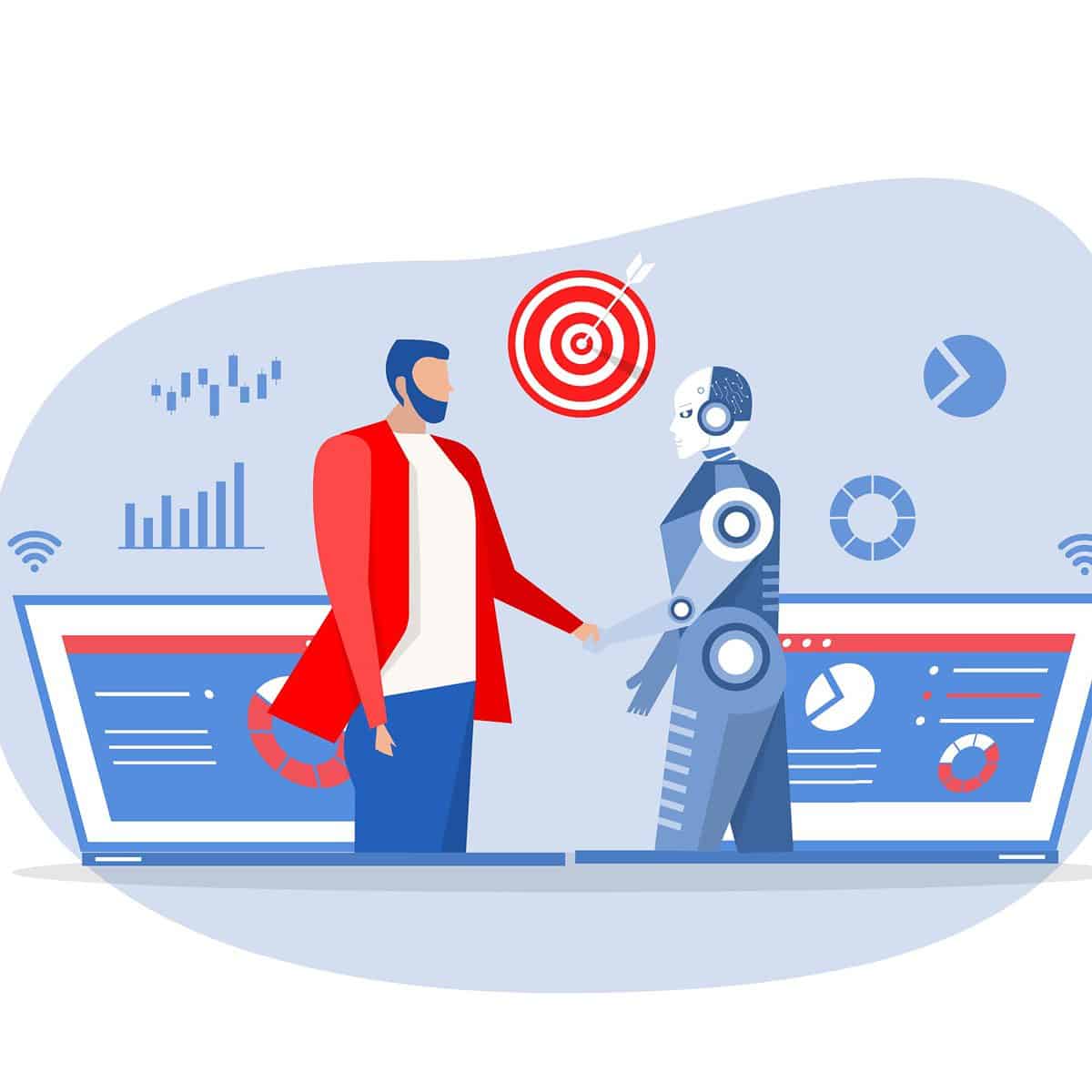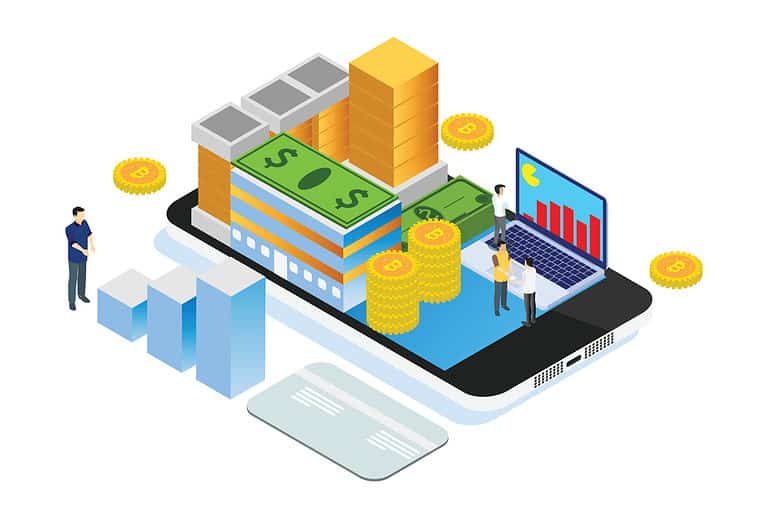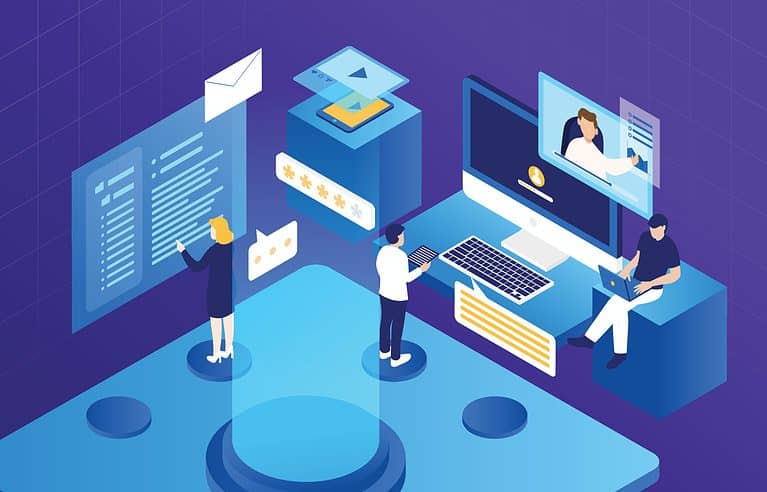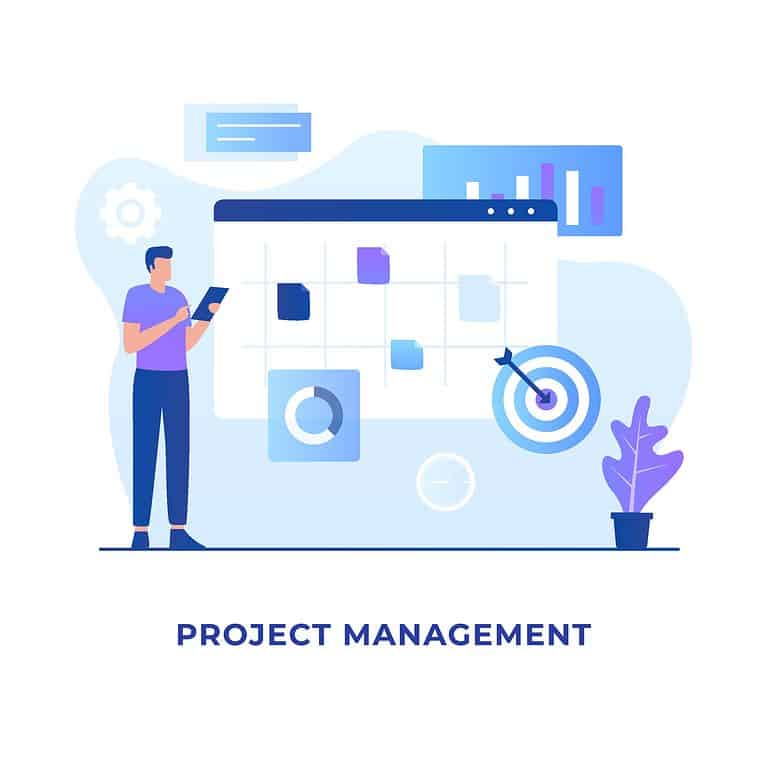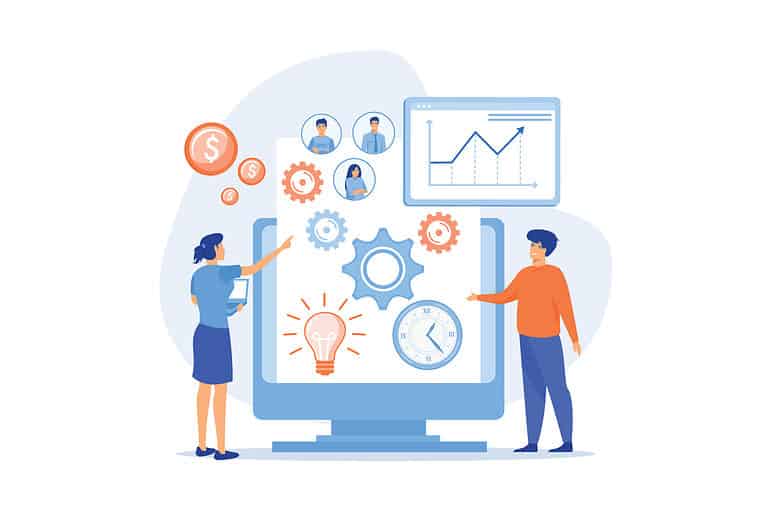37 Ideas on How AI Can Help your business
Artificial Intelligence and Machine Learning can help you in all aspects of your business. Here are a few ideas of how to leverage them to save time, money, and de-risk your business. The future is now.

Strategy:
Predictive analytics:
Predictive analytics can help businesses make informed decisions by using machine learning algorithms to analyze data and make predictions about future outcomes. One product that can be used for this task is Google’s AutoML. AutoML allows businesses to build custom machine learning models without requiring specialized technical knowledge. It can be used to predict customer behavior, optimize pricing strategies, and forecast market trends. By using AI for predictive analytics, businesses can make data-driven decisions that can help them stay ahead of the competition and drive growth.
Predictive maintenance:
A business can use AI to do preventative maintenance by implementing a predictive maintenance system. One of the best products to use for this task is the Predix Asset Performance Management platform from GE Digital. This product uses machine learning algorithms to analyze data from sensors and equipment to predict when maintenance is needed, helping to prevent costly downtime and prolong the lifespan of assets. By proactively addressing maintenance needs, businesses can save time and money while improving overall efficiency.
Supply chain optimization:
A business can use AI to optimize their supply chain by implementing a tool like OptimoRoute. This powerful product uses artificial intelligence to analyze real-time data and make intelligent routing decisions, saving the business time and resources. It can also predict demand and optimize inventory management. OptimoRoute is the best choice for businesses looking to streamline their supply chain and improve efficiency. Check it out here: https://optimoroute.com/.
Predictive scheduling:
Predictive scheduling is a powerful tool for businesses looking to optimize their workforce and improve efficiency. By using artificial intelligence, businesses can accurately predict the demand for their products or services and schedule their employees accordingly. One of the best products for this task is AI Scheduling by X.AI. This intuitive software uses machine learning algorithms to analyze past data and forecast future demand, allowing businesses to make informed scheduling decisions. Check out X.AI’s AI Scheduling to learn more about how it can benefit your business. https://www.x.ai/ai-scheduling/.
Predictive pricing:
Predictive pricing is a powerful tool for businesses looking to optimize their pricing strategies. By using AI technology, businesses can analyze data from past sales, market trends, and competitor prices to accurately predict the optimal price for their products or services. One product that can assist with this task is PriceIntelligence by Prodigy Labs. This AI-powered platform utilizes machine learning algorithms to provide real-time price recommendations and help businesses stay ahead of the competition. Check out PriceIntelligence at https://www.intelligencenode.com/products/priceintelligence/ to see how it can benefit your business.

Sales:
Lead generation:
Use machine learning to analyze customer data and identify potential leads, using tools like Leadfeeder or Cognism.
Sentiment analysis in sales:
Use AI to analyze customer interactions and identify opportunities to upsell or cross-sell, such as with the Clarabridge CX Analytics platform.

Marketing:
Marketing personalization:
Use machine learning to personalize marketing campaigns and recommendations, such as with the Adobe Experience Platform.
Personalized recommendations:
Use AI to provide personalized product recommendations to customers, such as with the Amazon Personalize service.
Social media monitoring:
Use AI to track and analyze social media conversations, such as with the Hootsuite Insights tool.

Customer experience:
Customer service chatbot:
Use a chatbot platform like ManyChat or MobileMonkey to build a chatbot that can assist with customer inquiries, making it easier for your team to handle high volumes of requests.
Sentiment analysis:
Use natural language processing to analyze customer feedback and reviews, and track sentiment over time with tools like Brand24 or Synthesio.
Translation:
Implement machine translation for customer-facing content and communications, using tools like DeepL or Google Translate.
Natural language search:
Implement natural language processing to allow customers to search for products or information using conversational language, such as with the Algolia InstantSearch API.
Predictive customer service:
Use AI to forecast customer needs and proactively offer assistance, such as with the Inbenta Predictive Customer Service tool.

Finance:
Fraud detection:
Use AI algorithms to detect fraudulent activity in real-time, such as with the Fraud Detection Service from AWS.
Predictive analytics for financial services:
Use AI to analyze financial data and make predictions about market trends and risk, such as with the FinStream AI platform.

Operations:
Predictive maintenance:
Implement a predictive maintenance system using tools like Uptake or Predix to proactively identify and address potential equipment failures before they occur.
Supply chain optimization:
Use tools like Llamasoft Supply Chain Guru to optimize your supply chain and reduce costs using AI-powered analytics.
Inventory management:
Use AI-powered inventory management systems like Stitch Labs or Brightpearl to optimize stock levels and reduce waste.
Quality control:
Use machine learning to automatically identify defects in products or processes, such as with the Defect Detection AI from Umbo Computer Vision.
Supply chain:
Supply chain optimization: Use tools like Llamasoft Supply Chain Guru to optimize your supply chain and reduce costs using AI-powered analytics.
Predictive maintenance:
Implement a predictive maintenance system using tools like Uptake or Predix to proactively identify and address potential equipment failures before they occur.
Inventory management:
Use AI-powered inventory management systems like Stitch Labs or Brightpearl to optimize stock levels and reduce waste.

Support:
Customer service chatbot:
Use a chatbot platform like ManyChat or MobileMonkey to build a chatbot that can assist with customer inquiries, making it easier for your team to handle high volumes of requests.
Predictive customer service:
Use AI to forecast customer needs and proactively offer assistance, such as with the Inbenta Predictive Customer Service tool.

Other:
Text summarization:
Use AI to automatically summarize long-form content, such as with the SummarizeBot API.
Content generation:
Use GPT-3 or other language models to generate unique content for your business, such as blog posts or product descriptions.
Voice recognition:
Implement voice recognition technology to enable voice searches on your website or to build a voice-powered assistant, such as with the Google Cloud Speech-to-Text API.
Cybersecurity:
Use AI to monitor for and detect cyber threats, such as with the Darktrace Cyber AI Platform.
Data cleansing:
Use machine learning to automatically identify and correct errors in data sets, such as with the Trifacta Wrangler platform.
Talent acquisition:
Use machine learning to analyze resumes and job applications to identify top candidates, such as with the Pymetrics platform.
Employee performance evaluation:
Use AI to analyze employee data and provide insights on performance, such as with the Humanyze platform.
Project management:
Use AI-powered project management tools like Project.co to optimize task assignments and deadlines.
Email categorization:
Use natural language processing to automatically categorize and prioritize incoming emails, such as with the SaneBox service.
Image recognition:
Use image recognition technology to automatically classify and tag images, such as with the Google Cloud Vision API.
Personalized e-learning:
Use AI to personalize online learning experiences for students, such as with the Knewton adaptive learning platform.
Predictive analytics for HR:
Use AI to analyze employee data and make predictions about performance, retention, and other HR-related outcomes, such as with the Visier People Analytics platform.
Personalized medicine:
Use AI to personalize treatment plans for patients based on their individual characteristics and needs, such as with the Atomwise Molecular Design platform.
Predictive analytics for agriculture:
Use AI to analyze data on weather, soil, and other factors to optimize crop yields, such as with the Atomwise Molecular Design platform.
Personalized nutrition:
Use AI to analyze individual dietary needs and provide personalized nutrition recommendations, such as with the Nutrigenomix genetic testing kit.
Predictive analytics for retail:
Use AI to analyze customer data and predict shopping behavior, such as with the Celect platform.

